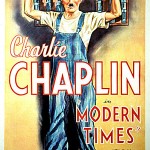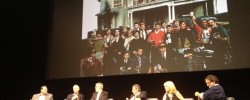
Subversive Saturday: Farewell, Amos Vogel
Editor’s Notes: The following article is a continuation of Matthew Blevins’ Subversive Saturdays series.
Amos Vogel’s Film as a Subversive Art is a book that initially inspired the title of this column and after his passing I devoted my series to the content and spirit of his preeminent book and its diverse chapters that captured different movements throughout film history. Each article covered a film that captured the spirit of each chapter of Vogel’s seminal book, usually films covered by Vogel himself but sometimes films that capture the subversive spirit and movement discussed in that chapter in the hopes of keeping the spirit of the book alive. Subversive cinema will always run parallel to the films of the mainstream and their lies through omission, illuminating uncomfortable truths to the world and opening hearts and minds to the universal struggles of the human condition because universal complacency to the status-quo is more terrifying than the lies of any innocuous Hollywood blockbuster. In my attempts to keep important historical films in the public consciousness and show the undying spirit of subversion I will press forward with this weekly column without the framework of Vogel’s book to guide me on my path, but here are the films dedicated to the each chapter of Film as a Subversive Art indexed and categorized for the first time for easier navigation and exploration.
“The Revolutionary Film Avant-garde in Soviet Russia” Earth (1930), Aleksandr Dovzhenko
“Aesthetic Rebels and Rebellious Clowns” The Blood of a Poet (1932), Jean Cocteau
“The Destruction of Time and Space” Ritual in Transfigured Time (1946), Maya Deren
“The Destruction of Plot and Narrative” Ashes (2012), Apichatpong Weerasethakul
“The Assault on Montage” The Red and the White (1967), Miklós Jancsó
“The Triumph and Death of the Moving Camera” Breakfast (Table Top Dolly) (1967), Michael Snow
“Straining towards the Limits” Misc., Misc.

“International Left and Revolutionary Cinema” Las Hurdes (1933), Luis Bunuel
“The West: Rebels, Maoists, and the New Godard” Sunday (1961), Daniel Drasin
“Subversion in Eastern Europe: Aesopian Metaphors” Two Men and a Wardrobe (1958), Roman Polanski
“The Third World: A New Cinema” How Tasty Was My Little Frenchman (1971), Nelson Pereira dos Santos
“East Germany: Against the West” Der Lachende Mann (1966), Walter Heynowski | Gerhard Scheumann
“Secrets and Revelations” Cuckoo Waltz (1955), Emile van Moerkerken

“The Power of the Visual Taboo” The Act of Seeing With One’s Own Eyes (1971), Stan Brakhage
“The Attack on Puritanism: Nudity” Ecstasy (1933), Gustav Machatý
“The End of Sexual Taboos: Erotic and Pornographic Cinema” A Free Ride (1915), A. Wise Guy
“The First Mystery: Birth” Window Water Baby Moving (1959), Stan Brakhage
“The Ultimate Secret: Death” The Games of Angels (1965), Walerian Borowczyk
“The Attack on God: Blasphemy and Anti-Clericalism” L’Age D’or (1930), Luis Buñuel
“Trance and Witchcraft” Traite de bave et d’eternite (1951), Isidore Isou

“Counterculture and Avant-garde” Putney Swope (1969), Robert Downey Sr.
“The Subversion of Subversion” Modern Times (1936), Charlie Chaplin
“The Eternal Subversion” TPB AFK: The Pirate Bay Away from Keyboard (2013), Simon Klose
Related Posts
Matthew Blevins
Latest posts by Matthew Blevins (see all)
- Subversive Saturday: The Bunny Game (2010) - July 21, 2013
- Subversive Saturday: Farewell, Amos Vogel - July 13, 2013
- TIFF’s A Century of Chinese Cinema Review: The Love Eterne (1963) - July 13, 2013

































